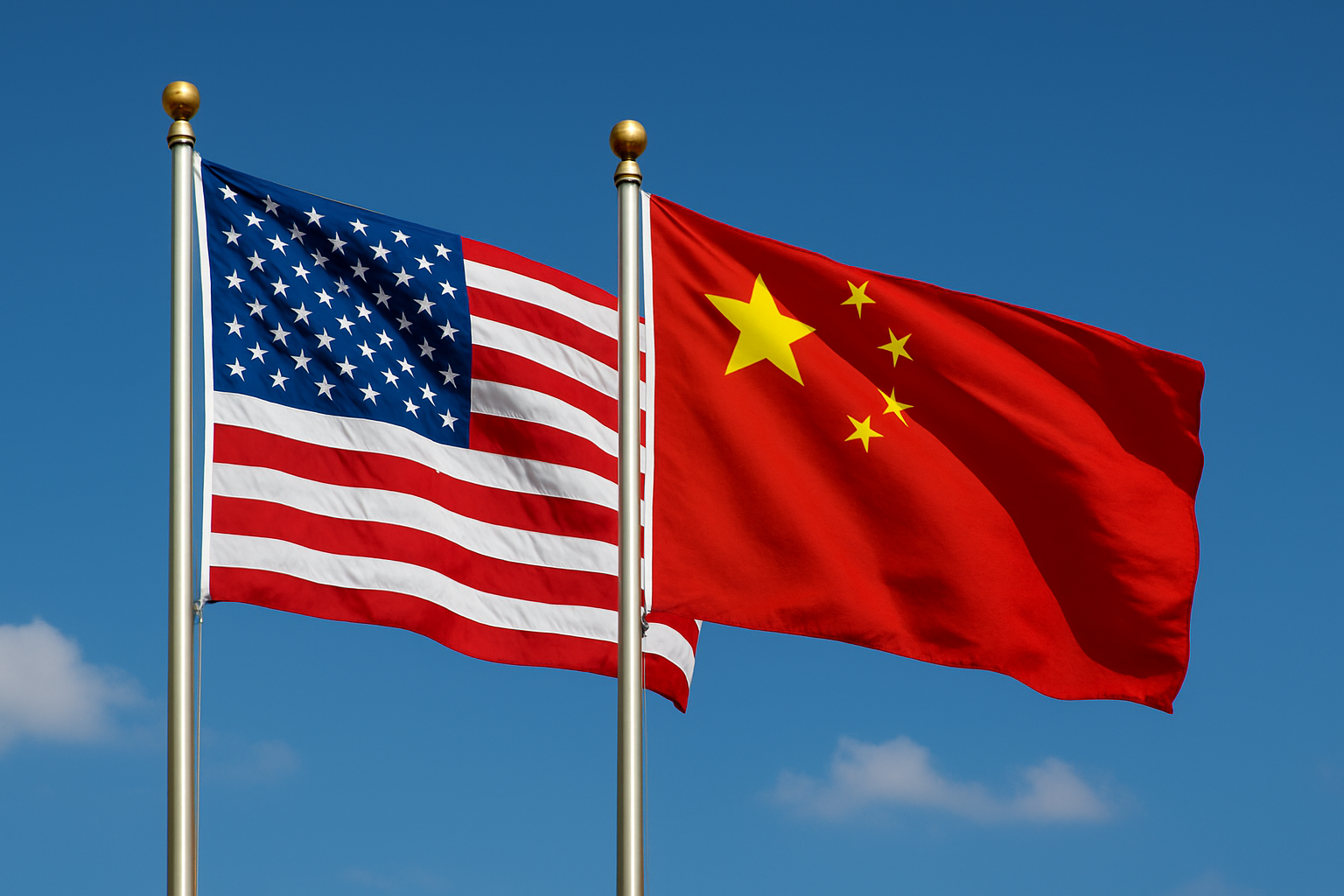How U.S.-China Cultural Exchange, Music, and the Arts Strengthen Diplomacy Beyond Government
OPINION COMMENTARY:
People-to-people exchanges — not governments — have long defined U.S.-China relations, writes Carla Dirlikov Canales. An acclaimed opera singer, academic and cultural diplomat, Canales shows how music, education, and shared experiences — from ping-pong diplomacy to choral festivals — bridge divides, proving that ordinary citizens are often the most enduring diplomats.
Editor’s Note: Seeing the Humanity in Homelessness
THE EMPATHY IMPERATIVE - ADDRESSING AMERICA'S HOMELESSNESS CRISIS SERIES:
EDITOR’S NOTE:
Homelessness is a human and societal failure that demands shared responsibility — not judgment. It reflects how easily we turn away from suffering we no longer see. In his interview and opinion commentary, Dr. Brian Klausner calls for renewed urgency, compassion, and reform to address the complex realities behind this national crisis.
Bridging Political Divides to Tackle the Worsening Social Crisis of Homelessness
THE EMPATHY IMPERATIVE - ADDRESSING AMERICA'S HOMELESSNESS CRISIS SERIES:
OPINION COMMENTARY:
Homelessness is one of America’s most urgent — and expensive — public health crises. In this powerful reflection, Dr. Brian Klausner shares what decades of caring for unhoused patients have taught him about empathy, policy, and humanity — and why solving chronic homelessness requires community collaboration, data-driven care, and compassion.
From Missing Voices to Common Ground: The Power of Shared American Experiences
OPINION COMMENTARY:
The Midwest is often overlooked for its cultural influence and electoral power. ALI Fellow Katie Kwo Gerson ’25 proposes a national initiative to elevate Midwestern voices and bridge America's cultural divides.
Family Silver for Climate Action
OPINION COMMENTARY:
As climate finance lags behind global needs, the untapped potential of $950 billion in idle Special Drawing Rights (SDRs) could be transformative. Rajan Mehta, Harvard ALI Fellow 2022, explores how rethinking SDR use might unlock new funding for climate action and carbon removal.
Congress Defuses a Ticking Time Bomb; Thank You, Kansas
OPINION COMMENTARY:
This year’s January 6 Joint Session of Congress to count electoral votes seemed uncontroversial. However, ALI Fellow Rex VanMiddlesworth examines how Congress quietly made a critical decision about the counting of electoral votes that may have a much larger impact in future presidential elections.
Unlocking Potential: A Call to Action for Expanding Mental Health Treatment Options
OPINION COMMENTARY:
Despite a national mental health crisis, access to care remains a significant challenge, particularly in underserved areas. The PSYPACT initiative offers a crucial solution, enabling licensed psychologists to provide telehealth and temporary in-person services across state lines. Virginia Gleason, ALI Fellow ’22, examines the urgent need for the eight states and three U.S. territories still restricting access to vital mental health care.
The People’s Davos: How the Global Black Economic Forum is Shaping a New Vision for the Future of Democracy
OPINION COMMENTARY:
As corporate America faces pushback on diversity efforts, the Global Black Economic Forum (GBEF) leads the charge for change. President and CEO Alfonso David outlines how reshaping economic opportunities and strengthening democracy for marginalized communities fosters inclusive growth and safeguards democratic values in the face of global challenges.
Common Design Reusable Packaging: Doing More with Less
OPINION COMMENTARY:
Imagine if every package – bottles, boxes, or phials – didn’t go to waste but was reused, helping to reduce pollution and conserve resources. Rajan Mehta advocates for a Common Design Reusable Packaging system to standardize reusable containers across industries, reduce environmental impact, and create a more sustainable cycle.
Political Giving is a Sugar High. Nonprofit Giving Promotes More Durable Gratification
OPINION COMMENTARY:
Your senator greets you with a smile and makes you feel so important that you contribute to his campaign, only to learn that he doesn’t need your money; he’s a shoo-in for re-election. John Carroll urges people to direct their giving to competitive political races and social missions that serve their local communities.
No More Excuses for Sitting on the Sidelines
OPINION COMMENTARY:
The 2024 election will be consequential, and fortunately, it's easier and more important than ever to become involved. Rex VanMiddlesworth presents a number of ways to do so, from working the polls to joining campaigns.
We Can’t Do It Without You: Multi-Stakeholders and the Fight Against Cybercrime
OPINION COMMENTARY:
Cybercrime is a global threat, demanding enhanced international cooperation and protection of human rights. The UN is now negotiating a new cybercrime treaty. Lead US negotiator, Ambassador (Ret.) Deborah McCarthy, argues for the involvement of multi-stakeholders – private sector, civil society, NGOs, and academia – to help member states in crafting and implementing the treaty to more effectively combat global cybercrime while safeguarding freedoms.
Clearing the Air: Mobilizing Individuals in Developing Nations to Act Against Air Pollution
OPINION COMMENTARY:
The global toll of air pollution is staggering with over 4 million annual deaths and many ailments; most caused by the smallest particles (PM2.5) hanging in the air. Rajan Mehta suggests small lifestyle changes that can help save us against this scrouge.
Reframing Diversity, Equity and Inclusion in Higher Ed Through Olympic Values and Game Theory
OPINION COMMENTARY:
The merits of diversity, equity and inclusion (DEI) initiatives are being fiercely debated on university campuses and elsewhere in society. Dr. Judi Brown Clarke, a chief diversity officer at a public research university and Olympic medalist, advocates for incorporating Olympic values and game theory into DEI initiatives thereby creating inclusive campus environments.
Kidney Transplantation for Undocumented Immigrants: Time To Find a Solution
OPINION COMMENTARY:
Approximately 3% of deceased undocumented immigrants donate kidneys, yet only 0.2% receive kidney transplants. Dr. Joel Adler highlights this stark disparity and calls for a reexamination of the organ transplant system, advocating for eligibility based on fairness and medical need.
Stem the Tsunami of Suffering From Metabolic Disease – Limit Ultra-Processed Foods in Our Food Supply
OPINION COMMENTARY:
Much of the American diet consists of ultra-processed foods (UPF) that fuel metabolic diseases, ill-health, and unnecessary suffering. We must implement strategies to reduce UPF for our collective well-being.
Can AI Be Fair and Unbiased?
OPINION COMMENTARY:
Artificial Intelligence seems to be everywhere, from the agenda of world leaders to the limited series-style boardroom drama at OpenAI. Harvard Fellow, Paulo Carvão, discusses the challenges and importance of fair algorithms to ensure responsible and unbiased AI use.
Empowering Drivers: Tech Tools for Safer Traffic Stops
OPINION COMMENTARY:
If you get pulled over, chances are you won't recall your rights due to the stress of dealing with the police. Anthony J. Mohr proposes a way to provide a rapid review of the dos and don'ts during traffic stops, potentially saving lives.
SCOTUS Opinions on Student Admissions and Debt Harm Our Economy
OPINION COMMENTARY:
Achieving racial equity has gone beyond a moral imperative to become an economic imperative for this nation. Peter Williams explains how the Supreme Court’s decisions on affirmative action and student loan debt makes the problem worse.
It Takes A Village: A Multi-Stakeholder Approach to Solving Homelessness in America
OPINION COMMENTARY:
To combat the homeless crisis in America, bureaucratic obstacles that hinder those in need must be overcome. Harvard ALI Fellows Melinda Giovengo and Betsy Schwartz critically examine HUD's Homeless Emergency Assistance and Rapid Transition to Housing (HEARTH) Act and showcase how the Coalition for the Homeless of Houston, Texas has successfully implemented a multi-stakeholder approach.




















